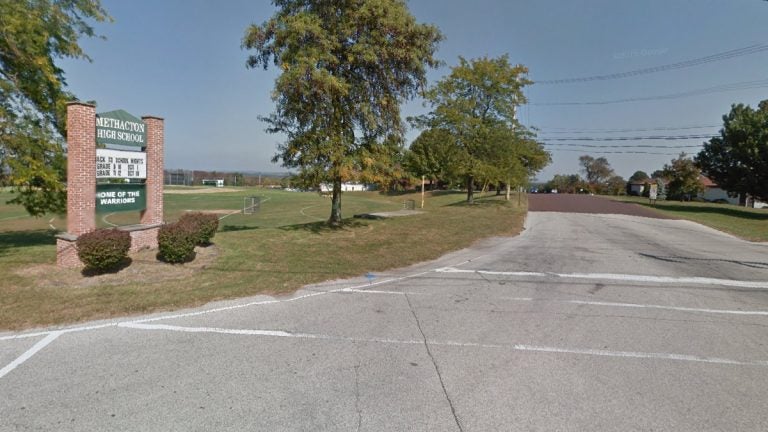Methacton teachers on strike; other districts in Philly region without contracts

Teachers in the Methacton School District have walked off the job for the first time in more than three decades.(image via Google maps)
School bells didn’t ring Monday morning for children in Methacton, a district of nearly 5,000 students in Montgomery County Pennsylvania. That’s because of the district’s first teacher strike since 1985.
Methacton teachers followed colleagues from the Scranton-area Abington Heights School District who had already walked out.
Pennsylvania is among a small handful of states where teachers strikes are legal — although teachers in the state’s largest district, Philadelphia, cannot walk off the job.
But where Pennsylvania teachers can strike, they do so with greater frequency than educators in other states. A 2015 analysis by the publication Education Week found strikes were more common in the Keystone State than anywhere else. Potential explanations for that include the fact that Pennsylvania has 500 school districts.
Right now, though, union and school board representatives said they’re seeing increased friction.
They attribute that partly to the fact that lots of districts are negotiating their first contracts since the recession ended. During those darker economic days, many unions agreed to take concessions or smaller-than-usual raises. Now, teachers expect some acknowledgment of their sacrifices.
“Those districts are in very different financial situations now and moving forward,” said Jimmy Gilbert, regional advocacy coordinator for the state teachers union, the Pennsylvania State Education Association. “The teachers are looking for fair settlements that take into consideration the concessions that they made in the past.”
In Montgomery and Bucks counties, about five districts — including Methacton — are without new agreements after previous contracts expired in June. He believes that’s an atypically large number.
The number of teacher strikes has declined since the early 1990s, says Emily Leader, an attorney with the Pennsylvania School Boards Association. That’s when the state passed Act 88, a law that limits the number of days teachers can strike before they’re forced back to work.
Still, she admits, strikes are frustratingly common in Pennsylvania. Like Gilbert, she also sees tension stemming from recession-era givebacks and the expectation teachers will be rewarded for the financial blows they absorbed a few years ago.
But Leader said districts aren’t always in a position to meet expectations. Pension and health care costs are still on the rise. And state law restricts how much districts can hike taxes without going to referendum. The result, she said, is a gap between what teachers feel they deserve and what districts feel they can pay.
“What’s realistic may feel very unsatisfactory to a lot of people,” said Leader.
WHYY is your source for fact-based, in-depth journalism and information. As a nonprofit organization, we rely on financial support from readers like you. Please give today.





